Versuchen GOLD - Frei
What Brain Science Teaches Us About Painting-PART 2
Station Points
|International Artist
James Gurney shares how new insights in visual perception and neuroscience can help us as artists

What you paint is a reflection of what you notice, and what you notice is a consequence of your conscious and unconscious visual strategies, some learned and some automatic. In the previous issue's article we looked at how images are constructed in the brain, both from the information that comes from the eyes, and from the predictive models handed down from the brain. We considered how vision is different from the camera and whether artists see differently from other people.
Now let's look at how image processing actually happens in the brain, and how we can recruit our eyes and brains to give us what we need to produce a painting.

TONE AND COLOR ARE PROCESSED SEPARATELY
According to Dr. Margaret Livingstone, the visual brain processes luminance (or tonal information) separately from color information. The two streams originate in the retina, which begins with low-level processing such as recognition of edges and contrasts. The information pathways continue to the optical cortex at the back of the brain. Although there is some crossover and interaction, the two streams-luminance and color-are largely kept separate, from the level of the retina all the way to the higher-level vision centers of the brain.
The area of the brain that interprets tone is several inches away from the area that interprets color, making the experience of tone and color distinct physiological experiences, as distinct as sight and hearing. The color stream is also called the ventral stream or the "what" stream. It is more concerned with recognizing and identifying objects. Color processing through the ventral stream is a capacity that is shared only by higher primates, not the bulk of other mammals.
Diese Geschichte stammt aus der Station Points-Ausgabe von International Artist.
Abonnieren Sie Magzter GOLD, um auf Tausende kuratierter Premium-Geschichten und über 9.000 Zeitschriften und Zeitungen zuzugreifen.
Sie sind bereits Abonnent? Anmelden
WEITERE GESCHICHTEN VON International Artist
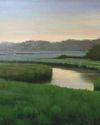
International Artist
Marshland Glow
Through glazing and scumbling, oil painter Karen Murphy manipulates her medium to create atmospheric landscapes
1 mins
August/September 2025
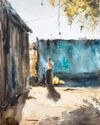
International Artist
Quiet Rhythm
Using deep shadows and a desaturated palette, Daria Antonova creates townscapes imbued with emotion
1 mins
August/September 2025
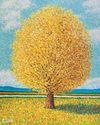
International Artist
To the Point
Keita Tsuji uses pointillism to heighten the color expression in his pastel paintings
1 mins
August/September 2025
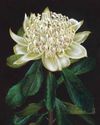
International Artist
Change Up
Primarily a watercolor artist, Heidi Willis breaks down her approach to working with a new medium
2 mins
August/September 2025
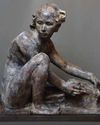
International Artist
Form and Space
Alicia Ponzio's interest in human anatomy guides her sculptural works
2 mins
August/September 2025

International Artist
The Texture of Time
Bennett Prize winner Amy Werntz create works of art that celebrate the beauty that only comes with age
5 mins
August/September 2025
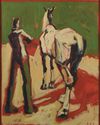
International Artist
Pattern making
My painting process is predominantly intuitive.
1 min
August/September 2025
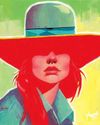
International Artist
The Big Picture
Tony Thielen paints bold, expressive scenes by starting with the biggest shapes, then working toward the finer details
1 mins
August/September 2025
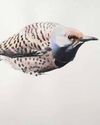
International Artist
Fluid Fusion
Pigments merge and create subtle gradients in Ian de Hoog's traditional wet-in-wet approach
2 mins
August/September 2025
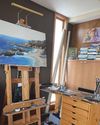
International Artist
MAKING MOVES
How to pitch your work to the press
4 mins
August/September 2025
Translate
Change font size

